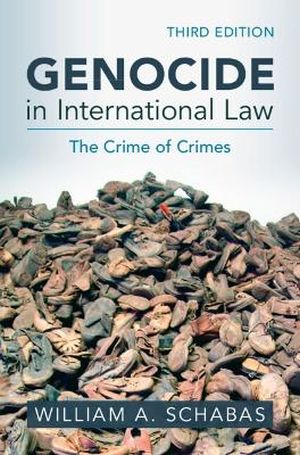
The device(s) you use to access the eBook content must be authorized with an Adobe ID before you download the product otherwise it will fail to register correctly.
For further information see https://www.wildy.com/ebook-formats
Once the order is confirmed an automated e-mail will be sent to you to allow you to download the eBook.
All eBooks are supplied firm sale and cannot be returned. If you believe there is a fault with your eBook then contact us on ebooks@wildy.com and we will help in resolving the issue. This does not affect your statutory rights.
The 1948 Genocide Convention has become a vital legal tool in the international campaign against impunity. Its provisions, including its enigmatic definition of the crime and its pledge both to punish and to prevent the 'crime of crimes', have now been considered in important judgments by the International Court of Justice, the international criminal tribunals, and domestic courts.
Since the second edition appeared in 2009, there have been important new judgments as well as attempts to apply the concept of genocide to a range of new conflicts. Attention is given to the concept of protected groups, to problems of criminal prosecution and to issues of international judicial cooperation, such as extradition. The duty to prevent genocide and its relationship with the doctrine of the 'responsibility to protect' are also explored by William Schabas who is recognized as a global authority on the crime of genocide.
Key features:
William A. Schabas is Professor of International Law at Middlesex University London and Emeritus Professor at Leiden University and the University of Galway. The author of many books and journal articles on the subject of international human rights law and international criminal law, Schabas served as an international member of the Sierra Leone Truth and Reconciliation Commission (2002 to 2004) and chairman of the commission of inquiry into the Gaza conflict established by the United Nations Human Rights Council in 2014. He has appeared before the International Court of Justice and the Grand Chamber of the European Court of Human Rights in cases concerning genocide. He is an Officer of the Order of Canada and a Member of the Royal Irish Academy, and was awarded the Vespasian V. Pella Medal for International Criminal Justice by the Association Internationale de Droit Pénal.